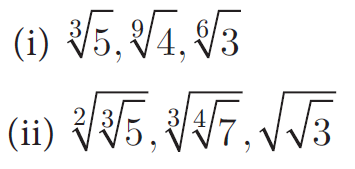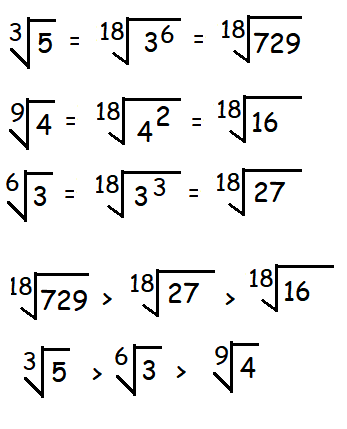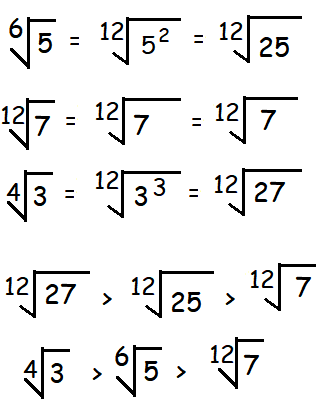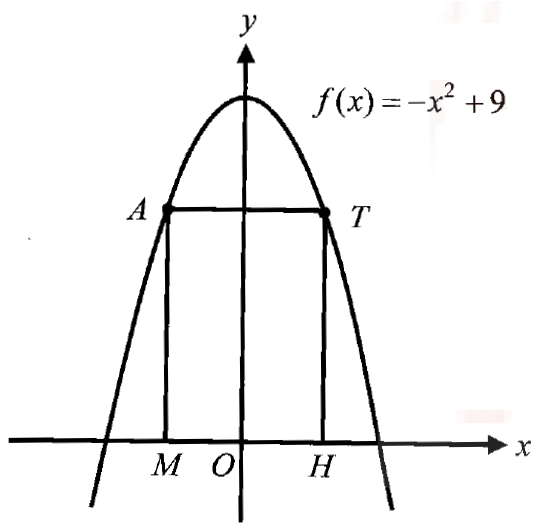ARRANGING SURDS IN DESCENDING ORDER
Question 1 :

Solution :
Exponential form of given radical terms.
51/3, 41/9, 31/6
L.C.M of 3, 9 and 6 is 18.

(ii) Exponential form of given radical terms.
51/6, 71/12, 31/4
Solution :

Question 2 :
Can you get a pure surd when you find
(i) the sum of two surds
(ii) the difference of two surds
(iii) the product of two surds
(iv) the quotient of two surds
Justify each answer with an example.
Solution :
(i) Let us take an example,
√2 + √2 = 2 √2
Convert into pure surd, we get
2√2 = √8
√8 is pure surd. Hence the answer is yes.
(ii) √10 - √5 = √5
Convert into pure surd, we get
√10 - √5 = √5(√2 - 1)
Hence the answer is yes.
(iii) the product of two surds
√10 x √5 = √50
Hence the answer is yes.
(iv) the quotient of two surds
√(35/7) = √5
Hence the answer is yes.
Can you get a rational number when you compute
(i) the sum of two surds
(ii) the difference of two surds
(iii) the product of two surds
(iv) the quotient of two surds
Justify each answer with an example.
Solution :
Every integer can be written as rational number. Hence the answer is yes.
Kindly mail your feedback to v4formath@gmail.com
We always appreciate your feedback.
©All rights reserved. onlinemath4all.com
Recent Articles
-
Digital SAT Math Problems and Solutions (Part - 138)
Apr 07, 25 07:22 AM
Digital SAT Math Problems and Solutions (Part - 138) -
Implicit Differentiation Problems and Solutions
Apr 06, 25 11:54 PM
Implicit Differentiation Problems and Solutions -
Digital SAT Math Problems and Solutions (Part - 137)
Apr 06, 25 08:42 AM
Digital SAT Math Problems and Solutions (Part - 137)
